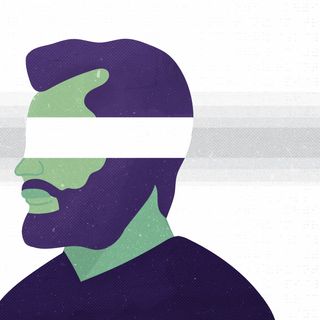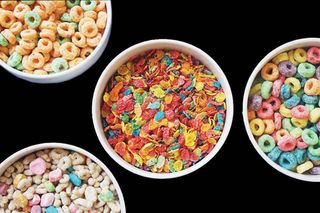
Bad Decision‑Making Arises From Too Many Choices and a Harried, Hungry Brain
We’re less likely to choose our favorite cereal when there’s 20 to choose from.

Why are judges more likely to give parole at certain times, rather than others? Why do politicians get tangled up in unsavory scandals that they know will ruin their careers? Why did you buy yet another breakfast cereal brand you’re not enthusiastic about? Why do we make bad decisions — especially those we know we’ll regret?
The answer lies in a cocktail of brain functions — ranging from visual appeal to peer pressure to anxiety to fatigue. When we do make decisions, the assumption is that all of them are logical. When a person decides between two factors, both factors receive a certain mental rating or value, and the more valued factor is what’s chosen. However, the sheer number of decisions we must process mentally makes it impossible to give each decision the necessary care and logic. Hence, the proliferation of bad decisions that cause us more problems than we began with.
Paul Glimcher, a neuroscientist from New York University, conducted an experiment where people had to choose amidst a variety of candy bars. This group of candy bars would also include their favorite candy bar — say, a Snickers in this case. If the choices were less, like three candy bars, people always chose the Snickers bar. But, if there were 20 candy bars to choose from, people were a lot less decisive. Sometimes, people would also not choose Snickers, even though it was their favorite.
Related on The Swaddle:
The Younger Kids Are, The More Thoroughly They Consider Their Decisions
Glimcher believes that variety definitely trips up decision-making. The brain consumes around 20% of our metabolic energy despite taking up only 2-3% of the body’s mass because neurons are extremely energy-hungry. This means that the more effort one has to put into making a decision, due to causes like more variety, the less likely it is that those decisions will benefit us. Thus, the more the candy bars, the more likely the decision won’t include the favorite candy bar.
Another theory that flows along the same lines is that of decision fatigue. “No matter how rational and high-minded you try to be, you can’t make decision after decision without paying a biological price. It’s different from ordinary physical fatigue — you’re not consciously aware of being tired — but you’re low on mental energy,” wrote John Tierney in the New York Times about decision fatigue. For example, if an individual spends an entire day fending away the temptation to eat a Snickers in front of them, their willpower is likely to weaken at some point and eat it.
This sort of fatigue can also originate from the stress of making constant trade-offs, especially when an individual is in monetary need. Dean Spears, a Princeton economist, offered multiple brands of soap at steeply discounted rates to people from some of the poorest villages in rural India. However, this discounted rate was still too steep for the villages, which meant they had to forego a discounted price due to their lack of resources or choose to buy the soap and deplete their resources. Making this decision left the villagers fatigued, whether or not they bought the soap.
While bad decisions are a function of fatigue or overwhelming choice, consciously made bad decisions are a bit more complex. Researchers Robert Pearl and George York combed through studies and psychological literature to understand why people made foolish decisions while aware of the consequences. “In the scientific literature, George and I noticed an interesting pattern: Under the right circumstances, a subconscious neuro-biological sequence in our brains causes us to perceive the world around us in ways that contradict objective reality, distorting what we see and hear,” wrote Pearl, while outlining their research for Vox.
Pearl and York named the phenomenon ‘brainshift’ and stated two main reasons why it could happen: high anxiety, or major reward. When it comes to anxiety, the brain experiences a perceptual shift that prevents them from seeing objective reality. Similarly, the brain loses objectivity when its reward centers are stimulated. The researchers also state that peer pressure can play a role in making regrettable decisions, influencing either anxiety or potential reward for conforming to a norm.
The best way to avoid decision fatigue or errant brainshift would be to eat healthy, high energy foods, simplify decision making by cutting out variety, and checking off the most important to-dos from a decision list. Pearl and York also state that all individuals must be cognizant of their fears, desires, and vulnerabilities that might lead to them making mistakes. If a decision seems ‘off’ — then consulting an outsider or even an expert (if the situation allows it) can help regain objectivity or provide a different, fresh perspective.
“The first big step toward avoiding the dangerous consequences … is to be aware that we are all vulnerable, regardless of our ethics, social status, or IQ,” wrote Pearl.
Aditi Murti is a culture writer at The Swaddle. Previously, she worked as a freelance journalist focused on gender and cities. Find her on social media @aditimurti.
Related


Increased Stress Hormone Levels Cause Cognitive Decline Linked To Alzheimer’s Disease
